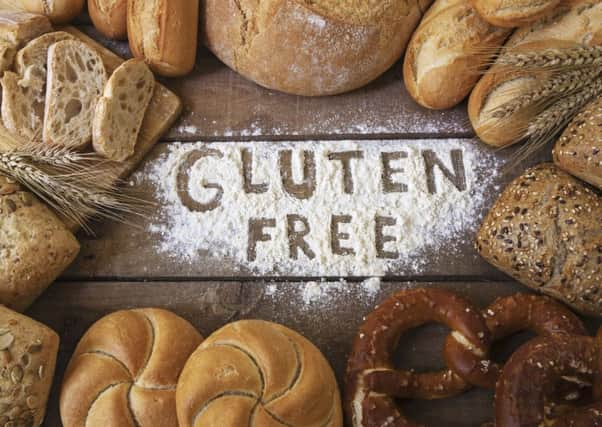Stores join in drive to help coeliac sufferers


It is fair to say that gluten-free provision has come a long way over the last twenty years, both in terms of quality of products and availability in store. Today, customers are faced with a variety of options including breads, pasta, chilled foods, ready meals, cakes and snacks in the Free From aisles of most of the major retailers. Coeliac UK, the national charity supporting people with the condition has been working alongside manufacturers and retailers for many years to make this happen and we are pleased to see the progress that has been made.
But, and it is a very significant but, this provision is not reaching everyone who needs it.
Advertisement
Hide AdAdvertisement
Hide AdAccess to staple gluten-free products remains patchy and restricted to large supermarkets, many of which are out of town. Supermarkets are also increasingly opting for convenience sized stores in cities, which stock few, if any, gluten-free items. Product ranges in smaller retailer and independent convenience stores are minimal at best.
Recent research by the University of Sheffield in 2015 looked at the cost and availability of gluten-free food in the UK in store and online. None of the budget supermarkets surveyed stocked any gluten-free foods while regular and high-end supermarkets stocked the greatest range.
In terms of cost, all gluten-free foods were at least four times more expensive than their gluten-containing alternatives. And while gluten-free products were widely available online, half of the surveyed products were significantly more expensive than equivalents in supermarkets.
In addition, a recent survey conducted by Coeliac UK investigating the shopping habits of people with coeliac disease found that nearly 80 per cent of those surveyed indicated they had to visit more than one store to complete their weekly shop and 14% needed to visit four or more stores, something that would not even be considered by someone without the burden of a restricted diet.
These barriers to access – location, availability and cost – puts pressure on the ability of people with coeliac disease to stick to their diet and stay healthy. It puts those who live in urban areas but with no reliable or affordable transport to travel to larger supermarkets at a disadvantage. It puts those who live in rural areas remote from shops stocking gluten-free food at a disadvantage. And it puts those on lower incomes unable to afford gluten-free food at a disadvantage.
So to improve the availability of gluten-free products in our shops, in 2014 Coeliac UK asked retailers to make a pledge to stock a minimum basket of gluten-free items – to make a ‘Gluten-free Guarantee’. Asda was the first retailer to sign up to the guarantee, joined recently by Morrisons and others are following suit.
It’s a key requirement of the guarantee that this minimum basket is available in every one of the retailer’s stores, large or small, so that as many people as possible can access core gluten-free products. The basket contains key items that people with coeliac disease look for – gluten-free breads, pasta, flour, crackers, breakfast cereals and cereal bars.
The next phase of the Gluten-Free Guarantee campaign will be to focus on improving availability in smaller convenience stores. We know there are challenges for smaller stores with limited shelf space and are keen to work with retailers to find a way that provides well for people with coeliac disease while being feasible for the convenience market.
Advertisement
Hide AdAdvertisement
Hide AdWe believe that for people with coeliac disease, shopping for the basics should be an exercise free from hassle and frustration and while progress has been made in the provision of gluten-free food significant barriers remain, restricting the diet and risking the health of many people with the condition. Coeliac UK will continue to work hard to remove these barriers.
l For more information visit www.coeliac.org.uk/gfg or email [email protected]